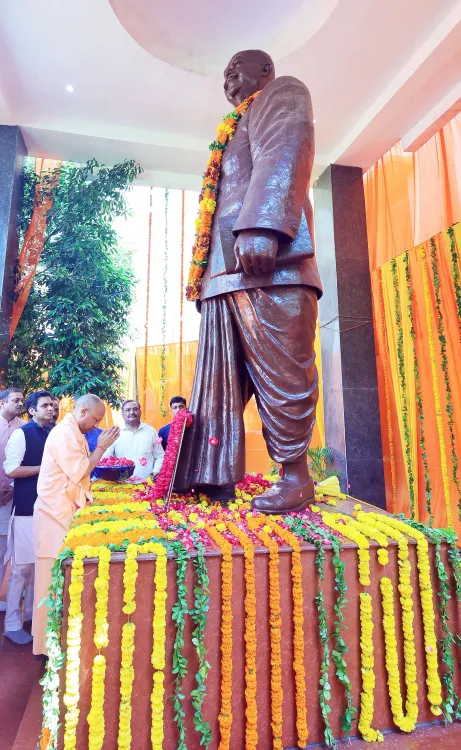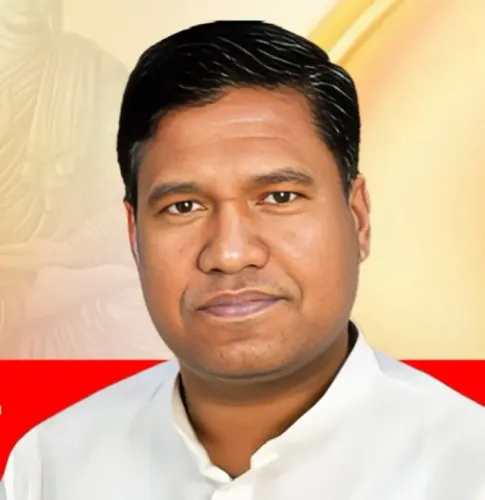Did Dr Syama Prasad Mookerjee Truly Dedicate His Life to India's Unity and Integrity?

Synopsis
Key Takeaways
- Dr Syama Prasad Mookerjee was a visionary leader dedicated to India's unity.
- He became the youngest Vice-Chancellor of Calcutta University at 33.
- His contributions shaped India's food security and industrial policies.
- Mookerjee's resignation from the cabinet was a stand against appeasement policies.
- His legacy continues under PM Modi with the abrogation of Article 370.
Lucknow, July 6 (NationPress) The Chief Minister of Uttar Pradesh, Yogi Adityanath, paid heartfelt homage to Dr Syama Prasad Mookerjee on the anniversary of his birth, reflecting on his immense contributions towards the progress of the nation.
During the event, the Chief Minister placed floral offerings at Dr Mookerjee's statue on Sunday, recognizing him as a visionary intellectual, a devoted patriot, and a courageous advocate for national unity.
Dr Mookerjee, born on July 6, 1901, became the youngest Vice-Chancellor of Calcutta University at the age of just 33, dedicating his life to the service of the country.
CM Yogi remarked that Dr Mookerjee's leadership during the Bengal famine earned him profound admiration. As the Minister of Food and Industry in free India under Prime Minister Jawaharlal Nehru, he established the groundwork for food self-reliance and industrial advancement—cornerstones that continue to influence New India today.
He further noted that Dr Mookerjee resigned from the Nehru cabinet in protest against the appeasement policies of that era and vehemently opposed the special status given to Jammu and Kashmir under Article 370, as well as the permit system.
The Chief Minister highlighted that Dr Mookerjee's vision has been realized by Prime Minister Narendra Modi, who abrogated Article 370, ensuring full integration of Jammu and Kashmir into the Indian Union.
CM Yogi acknowledged Dr Mookerjee, the founding president of the Bharatiya Jana Sangh, for laying the ideological groundwork for nationalist politics, stating that his powerful assertion, "Ek desh mein do pradhan, do vidhan, do nishan nahi chalenge" (There cannot be two Prime Ministers, two constitutions, and two flags in one nation) catalyzed a significant shift in the political arena.
He added that under PM Modi's guidance, India has transformed into a global investment destination and is embodying the true essence of 'Ek Vidhan, Ek Pradhan, Aur Ek Nishan'.
"The industrial growth that Dr Mookerjee envisioned has now materialized on a grand scale. Even amidst the global pandemic, India remained resilient, providing free rations to 80 crore people—an initiative that resonates with the principles of welfare and self-reliance that Dr Mookerjee championed," emphasized the Chief Minister.










